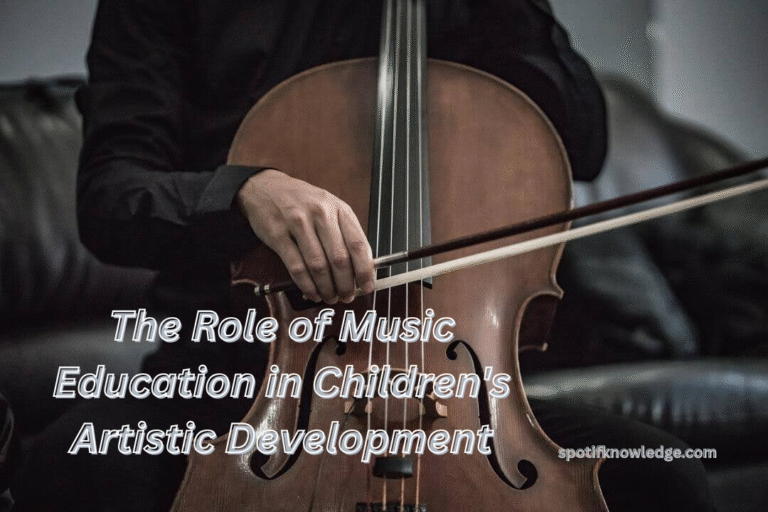Have you ever wondered why a simple melody can spark a child’s imagination or bring a smile to their face?
Music is more than background noise-it shapes the way children think, feel, and create. Whether it’s humming a tune, tapping along to a beat, or strumming a guitar, music opens the door to self-expression and creativity.
In this article, you’ll discover how music education helps children grow into confident, imaginative, and well-rounded young artists.
Encourages Creative Thinking
Music education helps children learn how to think in new ways. When they create melodies or experiment with rhythms, they use their imagination. This process lets them explore ideas and make artistic choices with confidence.
By practicing music, children learn that mistakes can lead to new ideas. They begin to see that there is more than one way to solve a creative problem. This flexible thinking helps them express themselves in unique and personal ways.
Builds Emotional Expression
Music gives children a safe space to share their feelings. A song can capture joy, sadness, or excitement without a single word. This makes it easier for them to process and understand their emotions.
Through playing or singing, children can release feelings they might keep inside. They learn that art can help them cope with different moods. Over time, they gain confidence in expressing how they feel.
Enhances Appreciation for the Arts
Learning music teaches children to notice beauty in sound. They start to hear the layers of rhythm, harmony, and melody in everyday life. This deepens their respect for different kinds of art.
As their ears grow sharper, they become more open to new artistic styles. They may develop a love for music from other cultures. This curiosity can inspire them to explore and value many forms of creative expression.
Improves Collaboration and Communication
Music often requires working with others. In bands or choirs, children learn to listen closely to those around them. This teaches them how to blend their voice or instrument into a shared sound.
They also practice giving and receiving feedback. This helps them communicate their ideas clearly. These skills can be used in any creative group setting they join in the future.
Strengthens Discipline and Patience
Learning music takes time and effort. Children must practice regularly to master even a simple song. This builds patience and a strong work ethic.
Over time, they learn that progress comes from steady effort. Structured learning can help guide them in the right direction and keep them motivated.
If you want to help your child stay on track and develop strong habits, you should enroll to online or in-person music lessons to get the support and feedback that makes practice more effective. This discipline helps them in both art and everyday life.
Where Young Hearts Find Their Voice Through Music
Music has a way of reaching children in places words cannot touch. It helps them see the world in color, feel emotions more deeply, and dream beyond the boundaries of their everyday lives. This creative spark stays with them, shaping how they express themselves long after the final note fades.
When we nurture a child’s artistic growth through music, we give them a gift that will last a lifetime. It is an investment in their creativity, confidence, and connection to the world around them.
Was this article helpful to you? If so, make sure to check out our blog for more useful information and resources.

